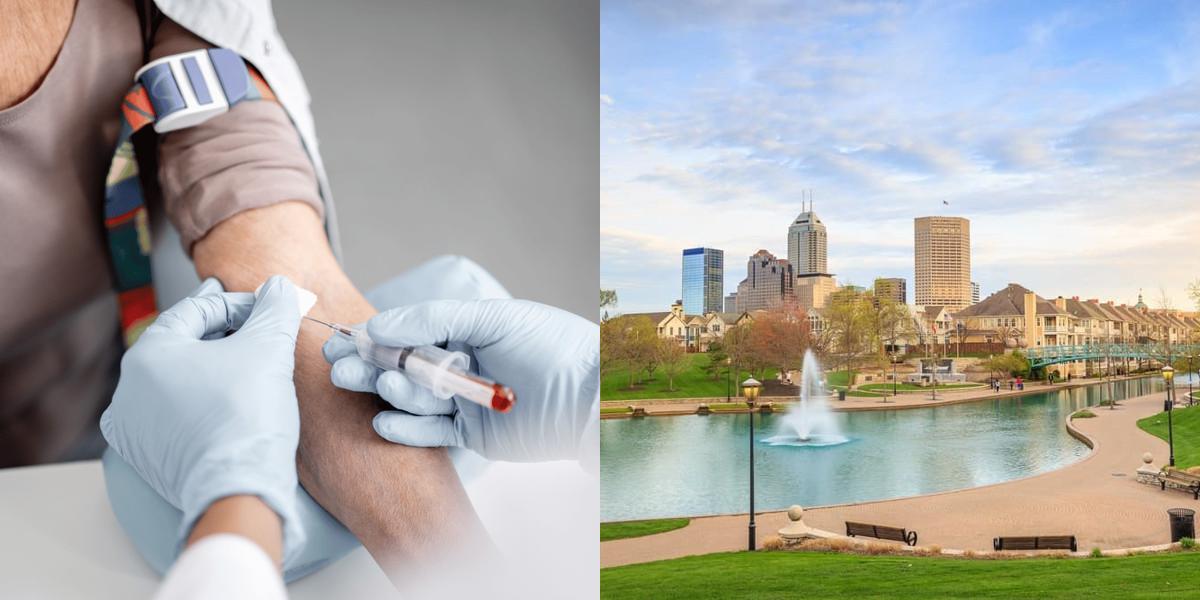How to Become a Phlebotomist in Indiana (2025)

If you're looking for a fast, affordable entry into Indiana's healthcare system, becoming a Phlebotomist is an excellent choice. With major healthcare networks like IU Health and Ascension St. Vincent constantly expanding, there is a steady demand for skilled technicians to draw blood for diagnostics. The state employs over 2,700 of these essential professionals who earn a median salary of $38,200 per year, according to the U.S. Bureau of Labor Statistics. This guide provides the definitive 5-step process for navigating Indiana's training and employer-mandated certification requirements to launch your career.
5. Apply for Jobs and Start Your Career
Once you’ve received your certification, it’s time to apply for phlebotomy jobs. You can find job openings in a variety of healthcare settings, including hospitals, outpatient clinics, blood donation centers, and medical laboratories. Use platforms like My Next Move or local job boards to search for opportunities and kickstart your phlebotomy career.
We encourage you to visit our guide to learn more about becoming a phlebotomist anywhere in the U.S., including the necessary steps, certification requirements, job opportunities, and phlebotomist salaries by state. It offers all the essential information you need to start your career.
Where to Find Phlebotomy Classes in Indiana
If you're looking for "phlebotomy classes near me" in Indiana, Dreambound is the top platform to find and compare vocational training programs. Offering both in-person and online options, Dreambound connects you with accredited phlebotomy training programs across the state, including in cities like Indianapolis. By visiting Dreambound, you can explore the available options and choose the program that best suits your needs.
Career Paths and Opportunities
Becoming a phlebotomist opens doors to various healthcare careers.
- Medical Laboratory Technician (MLT): Advance into lab testing and diagnostics.
- Blood Bank Technician: Work in donation centers and transfusion labs.
- Phlebotomy Instructor: Teach future phlebotomists in training schools.
- Nursing (LPN/RN): Transition into patient care roles with further education.
- Clinical Research Coordinator: Assist in medical studies and drug trials.
Frequently Asked Questions
How long does it take to become a phlebotomist in Indiana?
Becoming a phlebotomist in Indiana typically takes 4 to 8 months, depending on the training program.
How much does phlebotomy pay in Indiana?
The average salary for a phlebotomist in Indiana is $38,410 per year, according to the Bureau of Labor Statistics (BLS).
What qualifications do you need to be a phlebotomist in the US?
You need a high school diploma/GED, complete a training program, and pass a certification exam from ASCP or NHA.
What is the shortest time to become a phlebotomist?
The shortest training programs can be completed in as little as 4 months through an accelerated phlebotomy course.
Final Thoughts
Becoming a phlebotomist is an excellent entry point into the healthcare field, offering job security, quick certification, and opportunities for advancement. With short training programs and growing job demand, phlebotomy is a great choice for those interested in patient care and medical laboratory work.
Start your journey today with Dreambound, the top platform for finding vocational training programs.
Looking for a better fit? These other articles could be more in line with your expectations if this one isn't precisely what you had in mind:

Athena is Co-founder and CEO of Dreambound.





